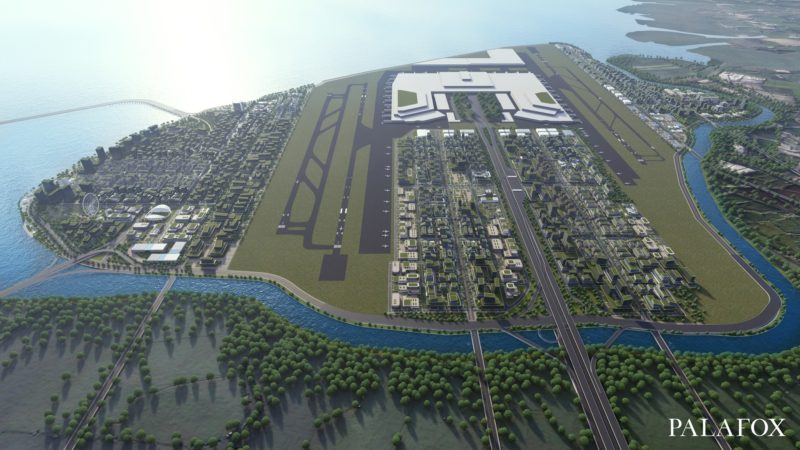-
The Bulacan Special Economic Zone and Freeport bill lapsed into law on June 13
-
The measure known as Republic Act 11999 creates the Bulacan EcoZone
-
It covers the airport city project of San Miguel Aerocity in Bulakan, Bulacan
-
The newly-enacted law is seen to create $200 billion in exports
The Bulacan Special Economic Zone and Freeport bill lapsed into law on June 13.
The measure known as Republic Act 11999 creates the Bulacan EcoZone or BuZ that covers the airport city project of San Miguel Aerocity in Bulakan, Bulacan. The Bulacan Special Economic Zone and Freeport Authority or BEZA will manage the BuZ.
San Miguel Aerocity is a wholly-owned subsidiary of San Miguel Holdings, which in turn is part of the country’s mega San Miguel Corp. conglomerate.
The newly-enacted law is seen to create $200 billion in exports, according to Rep. Joey Salceda, chairman of the House ways and means committee.
The project “will create massive revenue gains in income taxes and property taxes, so the forgone revenue from tax incentives will get offset,” he said.
The solon added the country’s gross domestic product could be boosted by no less than P130 billion annually, while land value gains will be at least P226 billion due to the measure.
The Bulacan airport has been planned to replace the Ninoy Aquino International Airport that lies between the cities of Pasay and Parañaque, which Salceda described as “a mess.”
The NAIA “should not be where it is,” he said. The old airport never realized its industrial potential and is a bane on the traffic and congestion situation in Metro Manila, he added.
He hopes that investors interested in logistics chains “will start investing in Bulacan before the airport gets completed.”
President Ferdinand Marcos Jr. had vetoed the measure creating BuZ during the 18th Congress, citing defects such as the low tax base and lack of coherence with existing laws, among others. Salceda then filed a new version in the 19th Congress to correct the deficiencies.
READ: Marcos vetoes Bulacan economic zone measure
The Bulacan EcoZone must be organized within 180 days after the law takes effect and should establish the general framework for land use, planning and development. It will have an authorized capital stock of P2 billion.
The special zone and affected local government units are entitled to a share of the special corporate income tax – 40% to the national government, 20% to the EcoZone for infrastructure development, and 40% to the local government units.









